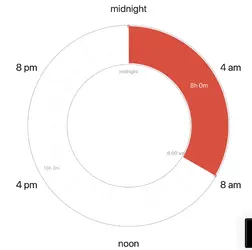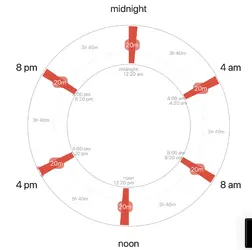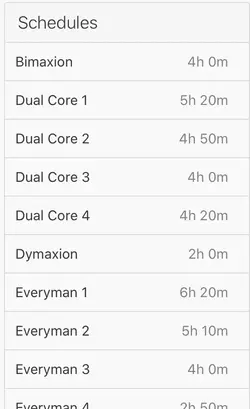Polyphasic sleep is a strategy designed to minimize daily sleep duration to 2-5 hours by incorporating multiple short naps (20-45 minutes each) throughout the day. The goal is to increase waking hours while maintaining alertness.
Contrastingly, most people follow a monophasic sleep pattern, characterized by a single, extended sleep period per day.

A popular polyphasic approach is the "Uberman" schedule, involving regular, equidistant naps without a long sleep period:

The polyphasic landscape is diverse; no one-size-fits-all model exists. Many start with a well-known pattern and customize it to fit their lifestyle... Or they just find their own way from the get-go.
There's a really lovely pattern generator you can play with here:
https://napchart.com/app
Click on the "Sleep" tab, and you'll see pretty much all of the well-known patterns people have experimented with.

If anyone else here has tried this let us know how it went for you.
Contrastingly, most people follow a monophasic sleep pattern, characterized by a single, extended sleep period per day.

A popular polyphasic approach is the "Uberman" schedule, involving regular, equidistant naps without a long sleep period:

The polyphasic landscape is diverse; no one-size-fits-all model exists. Many start with a well-known pattern and customize it to fit their lifestyle... Or they just find their own way from the get-go.
There's a really lovely pattern generator you can play with here:
https://napchart.com/app
Click on the "Sleep" tab, and you'll see pretty much all of the well-known patterns people have experimented with.

If anyone else here has tried this let us know how it went for you.

 lol
lol